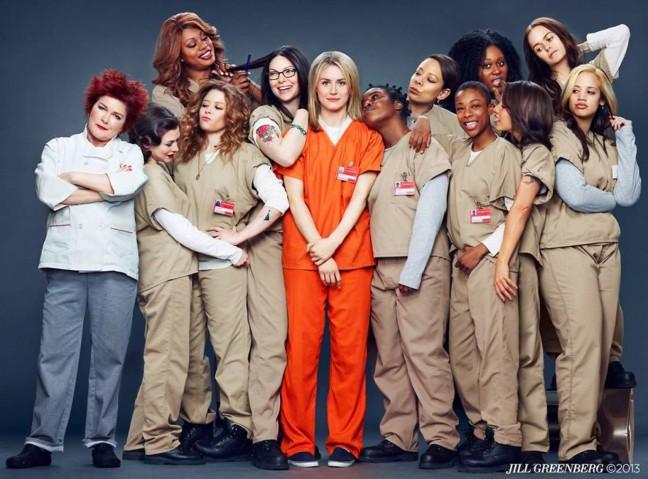In Hollywood, it’s all about taking it to the next level. Pushing buttons, straddling the line of taste and seeing just how far you can go before the man takes you down. That is (partly) what Hollywood is all about, Charlie Brown.
That leads us to Hollywood’s latest thrill: The red-band trailer. It’s the online movie trailer that happens to be so awesome (read: Obscene, profane, violent and likely to contain nudity), you have to promise you’re at least 17 years of age to watch it. And by “promise,” I mean “enter in whatever birth date you want.”
Hollywood isn’t fooling anyone when it puts up that “wall” between the children of America and the latest red-band trailer. It knows the barrier is not so much a wall as it is a small, easily-traversed-without-any-sort-of-consequence fence that’s there only because the Motion Picture Association of America requires it.
And that leap — if you even want to say it takes that much effort — has been the growing source of controversy among parents worldwide.
Brooks Barnes of The New York Times recently wrote a column about the growing frustration that the red-band trailer, particularly the trailer for upcoming film “Kick-Ass,” has caused.
In the trailer (you know, after you click through the age pop-ups), we see a kid who likes to masturbate to his high school English teacher, Nicolas Cage finally realizing what kind of films work best for him (i.e. the ones where he isn’t made out to be the handsome leading man with a receding hairline), Christopher Mintz-Plasse portraying the exact same character he played in “Superbad” and a charming 11-year-old girl in a purple wig by the name of “Hit Girl” who spews profanity like it’s her job and shoots bad guys in the head.
Sounds pretty awesome, right?
In his story, Barnes spoke with Nell Minow, a mom/lawyer/movie reviewer/daughter of FCC chairman Newton Minow. Now if the name “Newton Minow” sounds familiar, then you might be a communication arts major or have a little bit of knowledge about television history. As it turns out, Newton Minow was the guy who delivered the famed “vast wasteland” speech in 1961 that essentially told network executives to get their act together by creating television programming that was in the public’s best interest (and not necessarily what the public is interested in).
Now to recap: Barnes sees the trailer for “Kick-Ass” and sees something worth writing about. (In a side note, part of the issue with Barnes’ story is the extent of upset among parents in regard to the trailer. Many people, including Scott Mendelson of The Huffington Post, think Barnes has “taken the protests of one (in this case) knowledgeable and intelligent person and turned it into a finger-wagging trend story.”)
With a story idea in the works, Barnes goes and gets someone who one could say is genetically predisposed to being more of a… let’s find a word here… “tightass” about the situation. It’d be like a FOX News anchor looking to find someone who just might have something to say about the “excessive” wolf population in Alaska — and then coincidentally winding up with Sarah Palin saying “Gosh, you betcha.”
It comes as no surprise that Nell Minow isn’t a fan of the movie. And that’s fine. Parents have every right to protect their children from the cursing, gun-toting, purple wig-wearing girls that the world of cinema has to offer. However, Barnes’ story isn’t just about the pervasiveness of red-band trailers or how easy it is for a child to view them. In a slight turn from the subject at hand, the column turns into a question of when a film like “Kick-Ass” has gone too far in terms of content. As Minow said in Barnes’ article:
“These particular trailers are even worse than normal because they depict a child and so are more interesting to children … Isn’t there a limit to what we can ask children to do on screen?”
Not really. In “Kick-Ass,” we’re talking about a girl acting a little violently and a little free with the curse words. But that’s not the first time controversy swirled around a child acting in a movie. As Barnes points out, Jodie Foster played a prostitute in “Taxi Driver” when she was only 13 years old. Yet beyond the whole “young teen playing a prostitute” thing, many were worried about how she would react to filming the shootout scene toward the end of the film. And according to Wikipedia (a journalist’s favorite words), Foster described in an interview how the crew spent so much time teaching her the mechanics and special effects of the scene that by the time they filmed, the scene didn’t intimidate her at all. Furthermore, she had psychological testing done to make sure she was could handle such a heavy role before taking the part.
More recently, however, was the controversy surrounding Dakota Fanning’s rape scene in 2007’s “Hounddog.” Fanning was 12 when the movie was filmed. Although director and screenwriter Deborah Kampmeier (“Virgin”) took care in only shooting reaction shots of Fanning (and there are no action shots, as the scene is set in a dark shed during a storm), it’s hard to downplay a rape scene featuring a 12-year-old.
Yet as was the case for Foster, Fanning stood by the film. As she told USA Today, “the world isn’t rosy.” She was trying to act out a horrific reality, and it was handled in the best possible way.
To answer Minow’s question, it’s not a matter of “what we can ask children to do.” As Foster, Fanning and “Kick-Ass’s” now 13-year-old Chloe Moretz have established, it’s a matter of these young actors and actresses then asking themselves what they are and are not comfortable doing on-screen.
And c’mon, if you were an 11-year-old girl kicking ass, wouldn’t you be pretty excited about it?
Cailley Hammel is a junior majoring in journalism and communication arts. Have a kick-ass question or comment about her column? E-mail her at [email protected].









